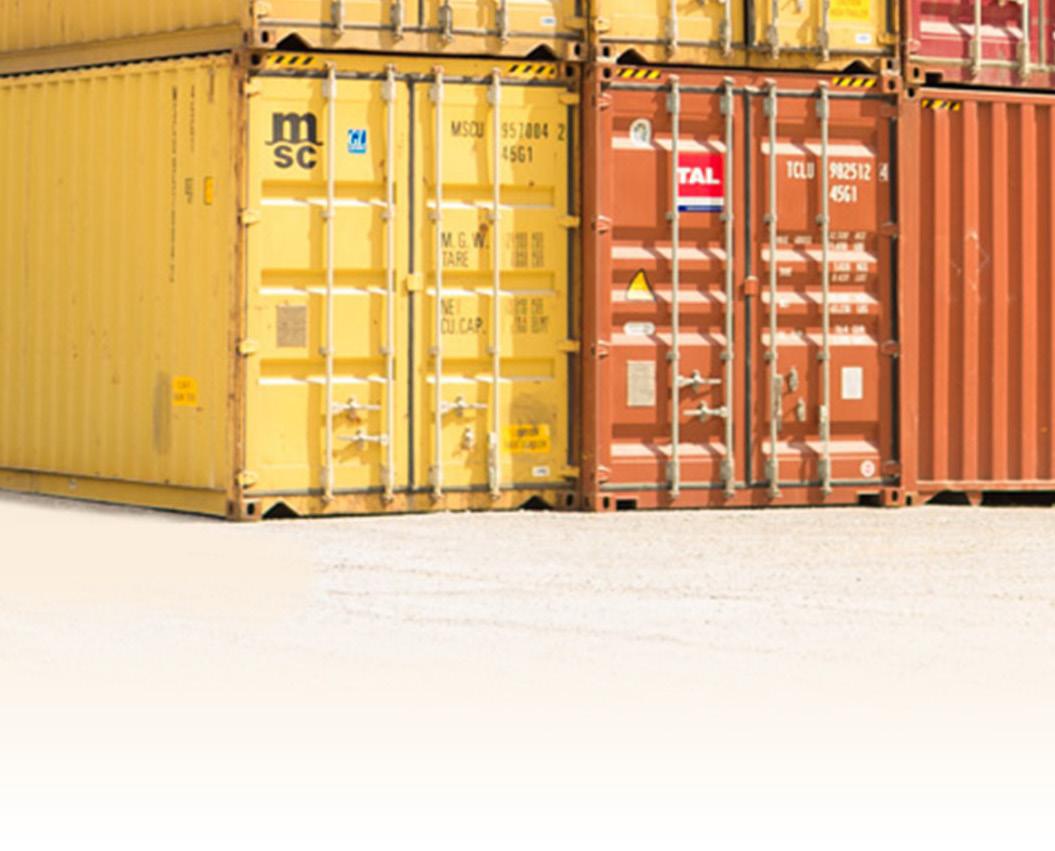
4 minute read
AFRICAN CEOS ARE POSITIVE ABOUT THE AFCFTA
The Pan African Private Sector Trade and Investment Committee (PAFTRAC) has published its Africa CEO Trade Survey Report 2022 assessing the impact of the AfCFTA on African trade. The 2022 report is the second edition of the PAFTRAC CEO Trade Survey. What follows is the executive summary of that document.

Advertisement
The scale of the research was greatly increased for this edition, with more indepth questions and far more chief executives taking part. When the survey was conducted, it was approaching 18 months since the start of trading under the African Continental Free Trade Area (AfCFTA) was announced, so African businesses are gaining more insight about its potential benefits and challenges.
As the world’s largest free-trade-area initiative, the AfCFTA is a much-needed project given that companies of all sizes across the continent are desperate to identify new markets and boost exports. Implementing the continental free trade area will be a long process that will be achieved by thousands of small steps. Making the required legislative and regulatory changes depends on the political will of all of the governments involved to make it a reality.
However, mistrust could easily restrict implementation, particularly where businesses on one side of the border fear increased competition from perhaps more economically developed markets.
One of the more surprising results of the survey was that 70% of respondents said that despite all the obstacles and the fact that intra-African trade accounts for just 16% of total African trade, they already export goods or services to other African countries. It is even more unexpected given that most of the survey participants lead small and medium-sized enterprises (SMEs) rather than large corporations. However, the vast majority export services rather than goods within Africa, underlining the fact that physical and regulatory obstacles continue to deter trade in goods.








At present, the vast majority of African CEOs believe that the AfCFTA will have a positive impact on both levels of intra-African trade and on their own companies, with just 4% expecting it to have a negative impact. The AfCFTA is widely expected to help businesses open up new markets for goods and services, while reducing the cost and bureaucracy attached to exports.

Transport Networks Must Improve
Some of the findings of the report are less surprising. For instance, the transport infrastructure required to trade goods between African states is lacking in most areas. Rail and road networks were developed on a national basis, with far too few cross-border links on which to carry freight. There are often too few customs posts, while many of those that do exist are slow and cumbersome. Regulations often demand that the same cargo is checked on each side of a border, while some countries have been slow to adopt digital bills of lading, letters of credit and other trade documents.
Regulatory changes come down to a matter of political will and administrative competence but upgrading transport infrastructure requires financing that will be difficult to secure. The growing penetration of digital banking services should make paying for imports easier but it is vital that the digital transformation is supported by both regulators and governments. Half of the exporters surveyed said that their companies still required cash in advance on cross-border deals, although letters of credit are also fairly popular. This may be the result of a lack of trust as well as difficulty in securing hard currency, while many banking platforms still do not allow the use of African currencies.
However, a solution is already on the horizon in the form of Afreximbank’s Pan-African Payment and Settlement System (PAPSS), so it will be interesting to see how quickly that is embraced by traders.
Clear Information Needed
The report clearly demonstrates that African businesses find it difficult to locate detailed information on the AfCFTA. Progress will be much slower if the rules on trade are not widely understood and kept up to date. Moreover, the results of the survey reveal that the lack of information on markets, opportunities and trading partners is the biggest constraint on exports. Indeed, 70% of respondents called for a fully functioning online one-stop information shop but sufficient resources need to be put in place to make such an undertaking operate effectively.
Solutions to the information deficit could come in the form of digital platforms provided by the AfCFTA Secretariat or private sector information providers. Other constraints to increased levels of trade cited by the participants include unfair competition, subsidies, political stability in target markets and a lack of security. The ease of trade varies considerably across the continent, with East and Southern Africa considered to be the best places to do business. North Africa was rated almost as a difficult a region in which to trade as Central Africa. Despite the fact that Morocco, Tunisia and to some extent Egypt are thriving manufacturing centres, their economies are geared around exporting goods to Europe and elsewhere, rather than to the rest of Africa. Greatly improving trade flows in Central Africa could have a huge impact on the continent as a whole because it lies at the heart of the continent. In particular, new railways across the region would benefit not only local companies but would boost trade between West and East Africa.

About Paftrac
The Pan-African Private Sector Trade and Investment Committee (PAFTRAC) unites African leaders from the private sector and provides a unique advocacy platform, bringing together the African private sector and African policymakers to support extra- and intra-African trade, investment and pan-African enterprise. The platform drives pan-African results by providing a framework for private sector engagement in trade and investment issues in Africa, including policy formulation and trade negotiations to support African economies in line with the ambitions of Agenda 2063: “The Africa We Want”. PAFTRAC enhances advocacy and supports policy actions and recommendations of the private sector on trade and investment issues at the national, trade corridor, regional and multilateral levels.










